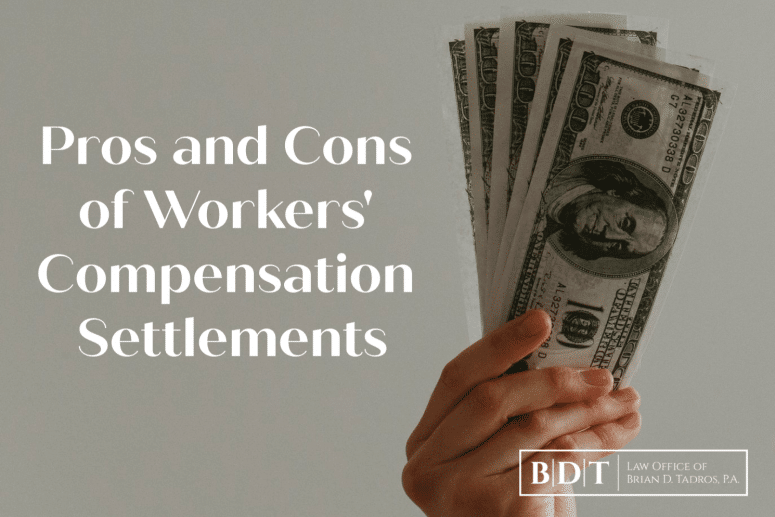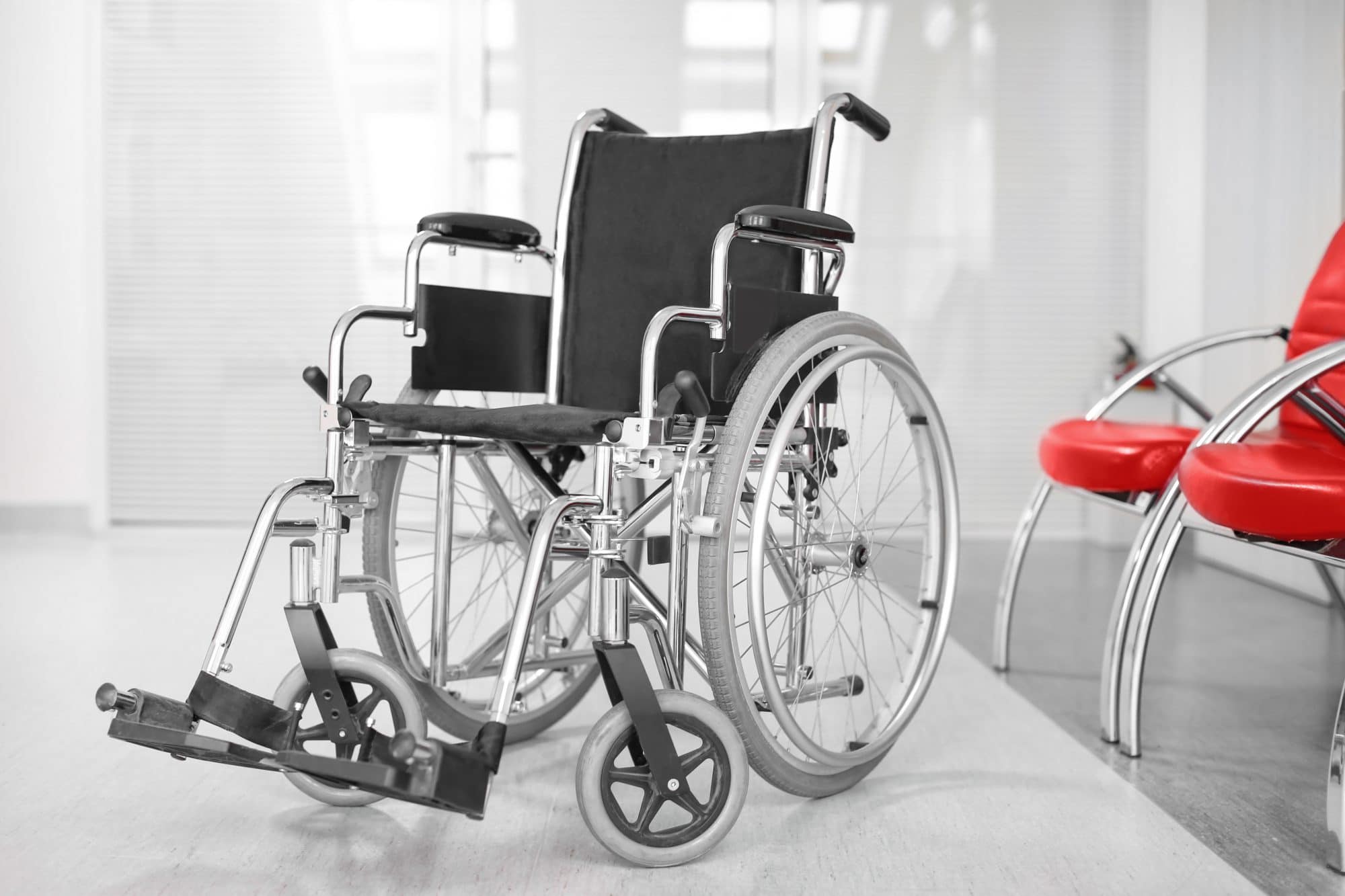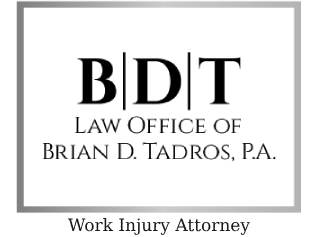
Naturally, the most ideal situation after a workplace injury would be for your employer’s insurance company to pay your workers comp benefits without making a fuss.
Unfortunately, this isn’t always the case.
Many insurance companies instead offer workers compensation settlements as an alternative to making regular payments until you have recovered from your injuries. But just as no two work injuries are alike, there is no single settlement amount that works for everyone.
Before you accept a settlement in your workers compensation claim, there are many factors to consider. In this article, we’ll cover the pros and cons of workers compensation settlements so you can make a more informed decision.
How Workers Compensation Settlements Work
Workers compensation settlements can come about in different ways. For example:
-
- The insurance company offers a settlement in response to your pending workers comp claim;
- The insurance company denies your claim and the two of you agree on a settlement amount after negotiations.
Injured at Work In Florida?
Settlement is voluntary in workers comp. Neither side can be forced to settle if they don’t want to and a judge cannot award a settlement.
If you decide you’d like to try to obtain a settlement rather than receiving regular workers compensation benefits, you and your attorney will determine what demand to make to the employer/insurance company. If they are interested in trying to resolve the case via settlement, they will respond and then the parties will continue to negotiate until one side refuses to move.
At that point, you will have a choice to make: accept the settlement offer or refuse and maintain your open case. If the parties can come to an agreement on a number that both sides approve, the case settles.
How Much Should I Accept?
When deciding on a fair settlement amount, you need to consider what past medical bills you have (if any), what your future medical treatment is going to cost the insurance company, your future lost wages, and what your likelihood of success is if you have issues that are in dispute pending for trial.
It is important to understand that the value of your case is not based on your own future medical expenses or any pain and suffering you have or will endure. Settlement value is based on what it will cost the insurance company to continue to provide benefits to you if your case remains open.
Importantly, there is no mechanism in the Florida Workers Compensation Law to allow you to be compensated for pain and suffering or loss of enjoyment of life and no amount of lawyering or sympathy from a judge can change that.
Your workers comp settlement will either be paid out as a lump sum or broken down into smaller payments over time. Either way, your case is closed for good once you agree to the settlement. You will not be entitled to additional payments, even if your money runs out or if your condition progresses and ends up worse than you anticipated.
Pros and Cons of Workers Compensation Settlements
Workers compensation settlements are not right for everyone and different cases are appropriate for settlement at different times during the life of each case.
For instance, even if you may require additional treatment, you may choose to accept a settlement offer because you want to obtain that treatment from a doctor of your choice rather than one selected by the workers compensation insurance company. Sometimes cases settle because the injured workers involved don’t want to pursue the medical treatment recommended or they are experiencing financial hardships.
Whatever the reason, settlements should only be pursued after careful consideration and detailed discussions with workers compensation attorneys regarding the possible outcomes if your case remains open versus what can reasonably be anticipated to be paid if the case settles as well what the possible risks are if you settle your case.

Pros of Workers Comp Settlements
Accepting the insurance company’s settlement offer effectively ends your workers comp claim. Once you receive your check(s), you are free to resume your daily life without concern for how your actions may impact your case. Out of all the pros and cons of workers compensation settlements, this fact carries a lot of weight for many people.
Another benefit is receiving a lump sum payment. Workers compensation benefits typically equal about two-thirds of your regular paycheck. If your bills have piled up, a settlement can help put your mind at ease and keep the debt collectors at bay.
Lastly, workers compensation settlements can give you a degree of control.
If you go through a hearing, you will not know exactly how much money you’re entitled to until the judge makes a decision based on evidence provided. Being able to negotiate the settlement amount means there’s a higher chance that you will be satisfied with the amount you receive, since you will be negotiating with the insurance company.
It should be noted that a judge can never award you a settlement. All a judge can do is determine if you have been paid for the correct periods, at the correct rate and whether you have received all medical benefits you are entitled to.
Cons of Workers comp Settlements
For many people, the chance to receive a large settlement is too good to pass up. But workers compensation settlements do have their drawbacks.
Perhaps the biggest disadvantage to a lump sum settlement is that you may spend all the money before you have fully recovered. Many people underestimate the amount needed to reach Maximum Medical Improvement (MMI) or to treat chronic injuries and illnesses. If you need surgery or lifelong care, a $10,000 check might not cover it.
Another drawback is that settlements are final. Once you have agreed to a settlement, the terms are legally binding. You will not be allowed to change your mind, pull out of the agreement, or ask for more money later on.
When Should You Settle Your Workers Comp Case?
Your ultimate decision will depend a great ideal on the individual factors in your case.
Before moving forward with any sort of workers compensation settlement, there are two people you need to consult with: your authorized treating physician and your workers comp attorney.

First, your doctor should evaluate you to decide if you have achieved maximum medical improvement (MMI). Have you healed enough to return to work? Will you have chronic symptoms that require treatment? Reaching MMI does not mean that your medical condition will not change after the settlement. It simply means that your condition is as good as it’s going to get.
Secondly—and most importantly—you should consult with a qualified workers compensation attorney. An experienced attorney is one who handles workers compensation cases day-in and day-out, so they have the right level of knowledge and experience to determine whether you are being offered a fair settlement.
Discussing the pros and cons of the workers compensation settlement with these two professionals is the best way to come to a decision that you will be satisfied with in the long-term.
Why You Need a Workers Compensation Lawyer
Workers compensation settlements are not right for every case, but they may make sense in your case. The only way to know for sure is to contact an experienced workers compensation attorney.
At The Law Office of Brian D. Tadros, we practice workers compensation cases and nothing else. Our focus is always on educating our clients and advocating for their rights as an injured victim.
If you have been offered a workers compensation settlement, do not accept the offer without calling Brian Tadros first. We are happy to discuss the details of your case to see how we can best work for you.
Call today for a free consultation.

